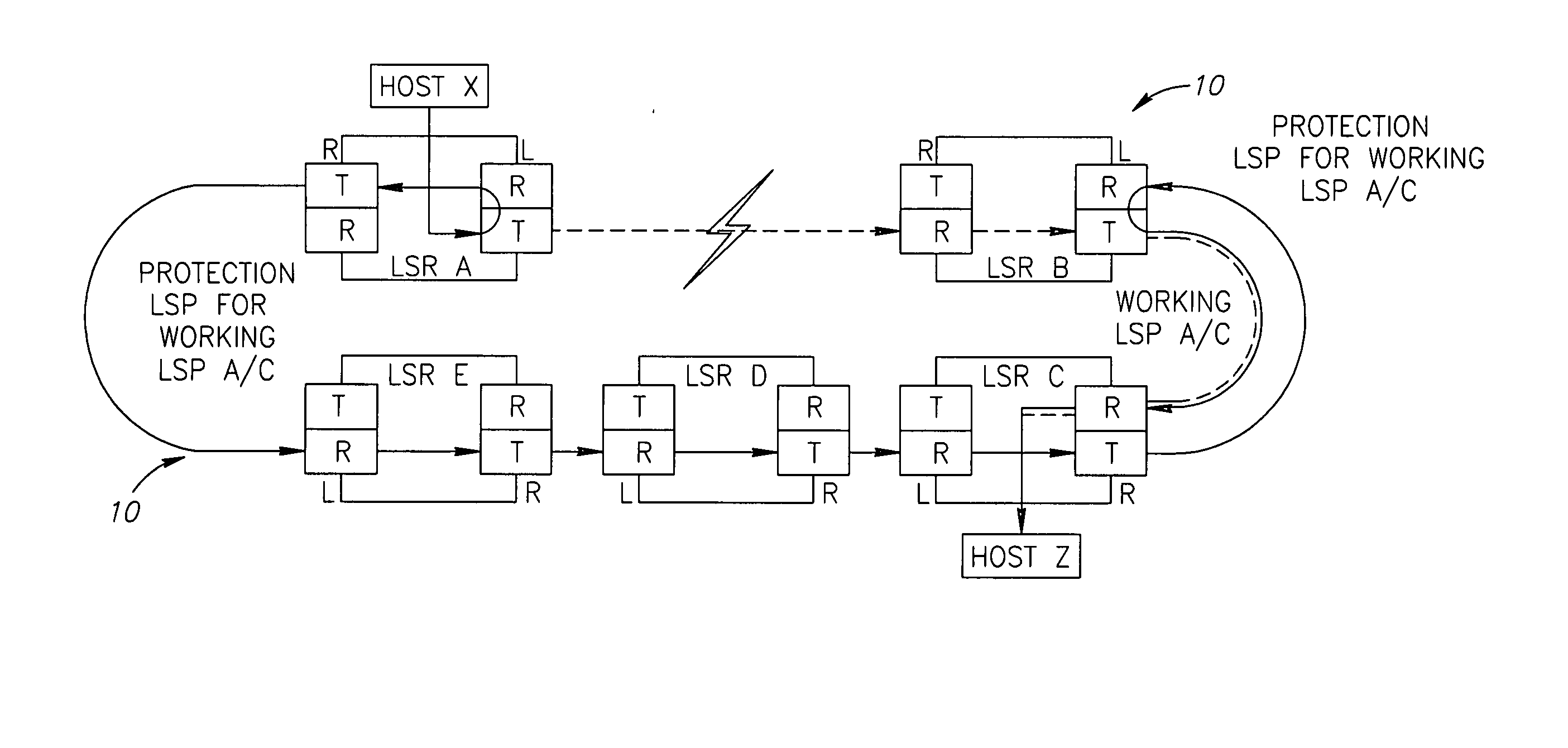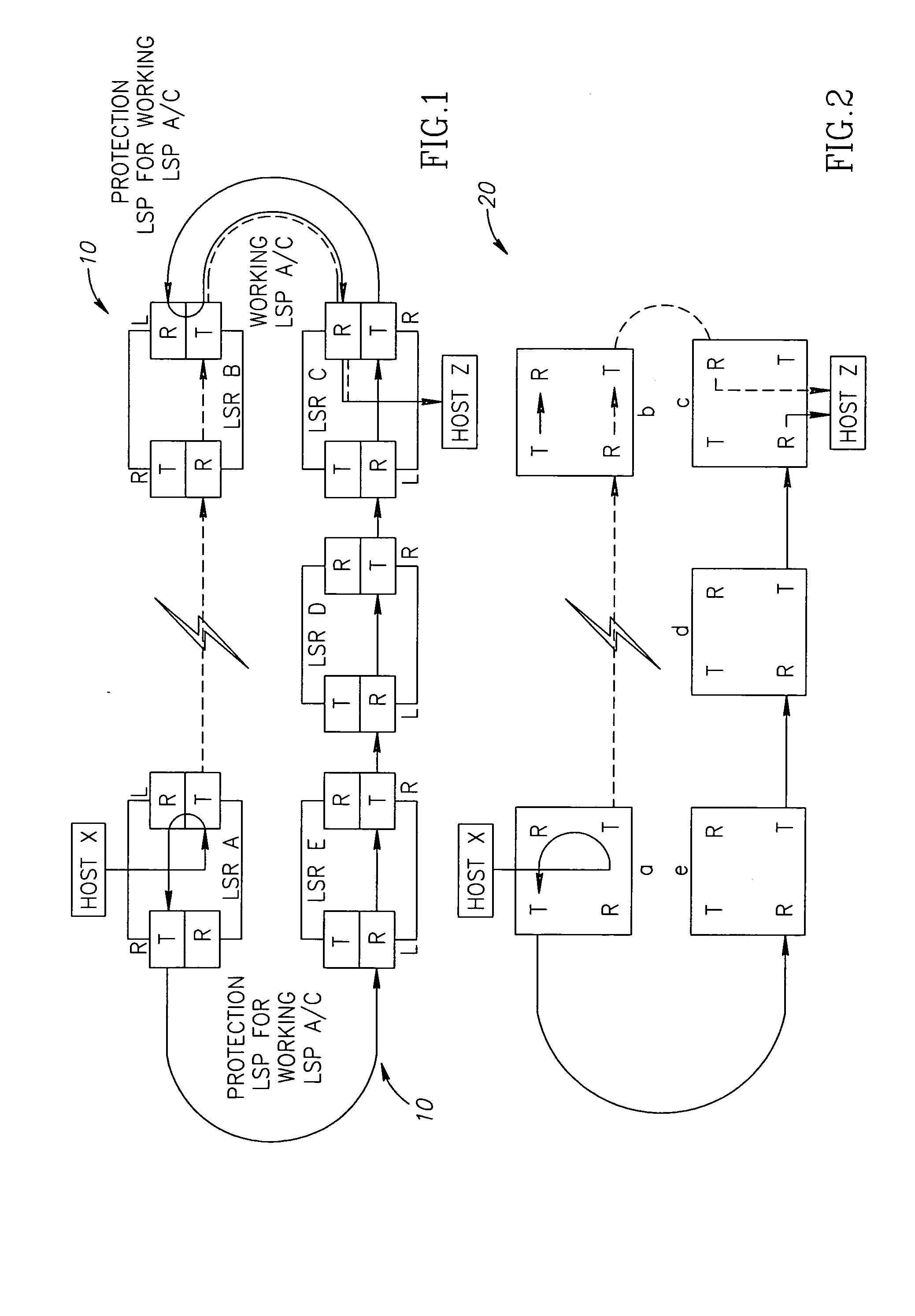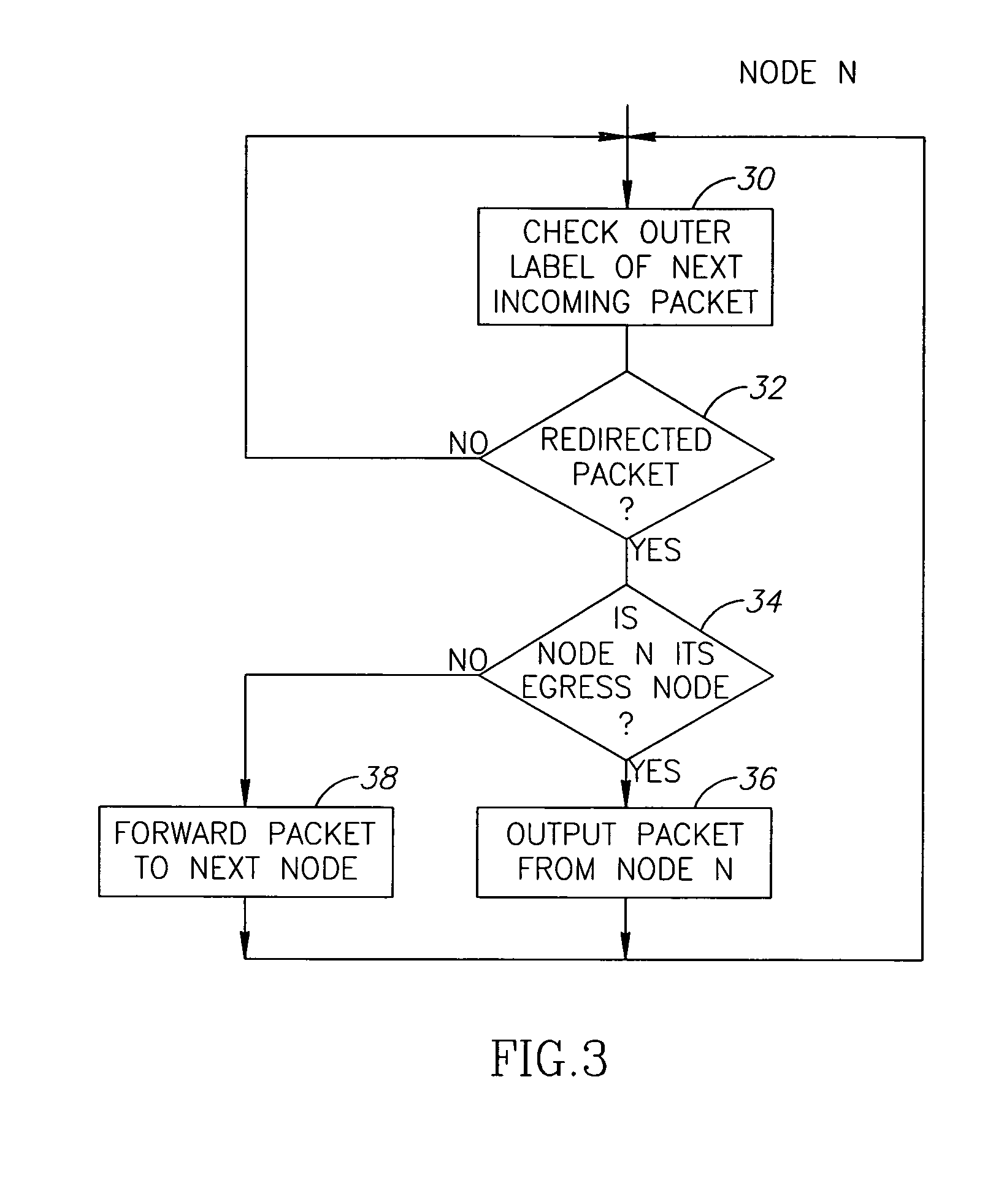Method for rerouting MPLS traffic in ring networks
a technology of ring network and rerouting, applied in the field of communication, can solve the problems of traffic delay, bandwidth bottleneck, ineffective protection of sonet/sdh ring, etc., and achieve the effect of fast rerouting of traffi
- Summary
- Abstract
- Description
- Claims
- Application Information
AI Technical Summary
Benefits of technology
Problems solved by technology
Method used
Image
Examples
Embodiment Construction
[0051]FIG. 1 shows a schematic route of redirected MPLS traffic in a ring network, as known from the prior art and in particular from US 2003 / 0108029 A1. As can be seen from the drawing, Host X associated with node A (LSR A) of a ring network 10 was in communication (the dotted line) with Host Z associated with node C (LSR C) of the ring 10 before occurrence of a fault (such as a fiber cut, marked as a lightning) between the nodes LSR A and LSR B. The main (working) path of a particular traffic flow (LSP) between the nodes A-B-C was allocated in the inner ring, a portion of which is shown by the dotted line and indicates the working LSP. After the fault, the LSP is redirected at the node A (LSR A) to a protection LSP A-E-D-C-B allocated in the outer (protection) ring and shown with the solid line. The protection path, according to the manner accepted for ring networks, is defined as having a termination point at node B, so the traffic follows till node B without checking it at inter...
PUM
 Login to View More
Login to View More Abstract
Description
Claims
Application Information
 Login to View More
Login to View More - R&D
- Intellectual Property
- Life Sciences
- Materials
- Tech Scout
- Unparalleled Data Quality
- Higher Quality Content
- 60% Fewer Hallucinations
Browse by: Latest US Patents, China's latest patents, Technical Efficacy Thesaurus, Application Domain, Technology Topic, Popular Technical Reports.
© 2025 PatSnap. All rights reserved.Legal|Privacy policy|Modern Slavery Act Transparency Statement|Sitemap|About US| Contact US: help@patsnap.com



